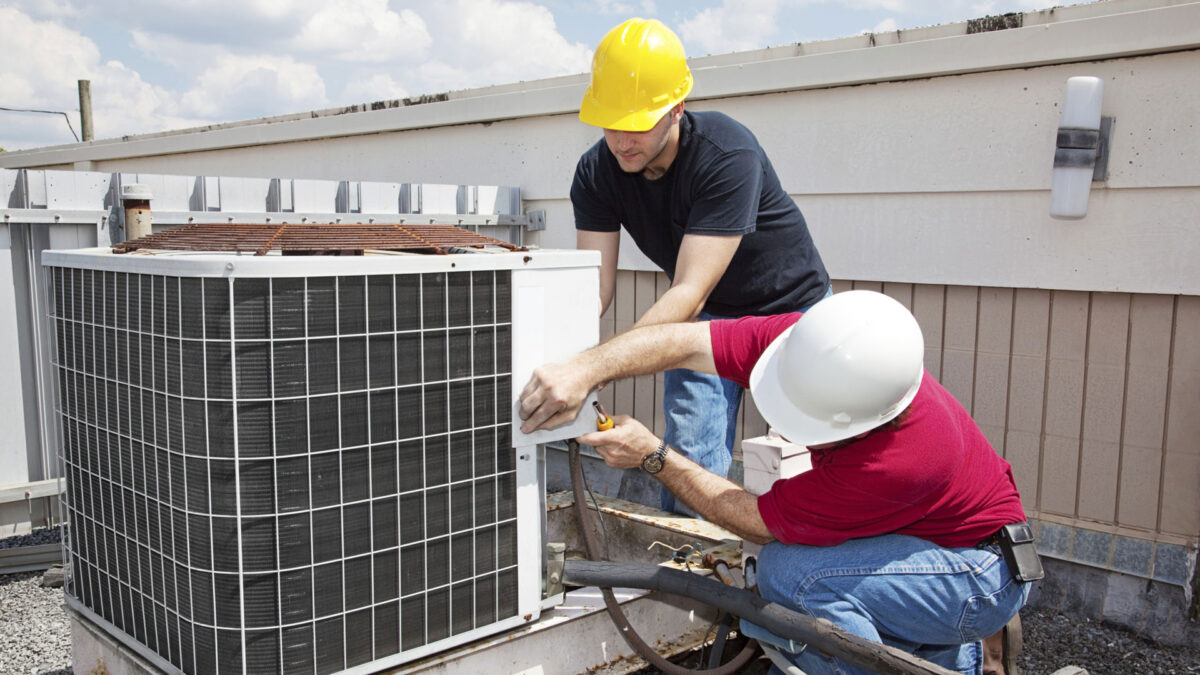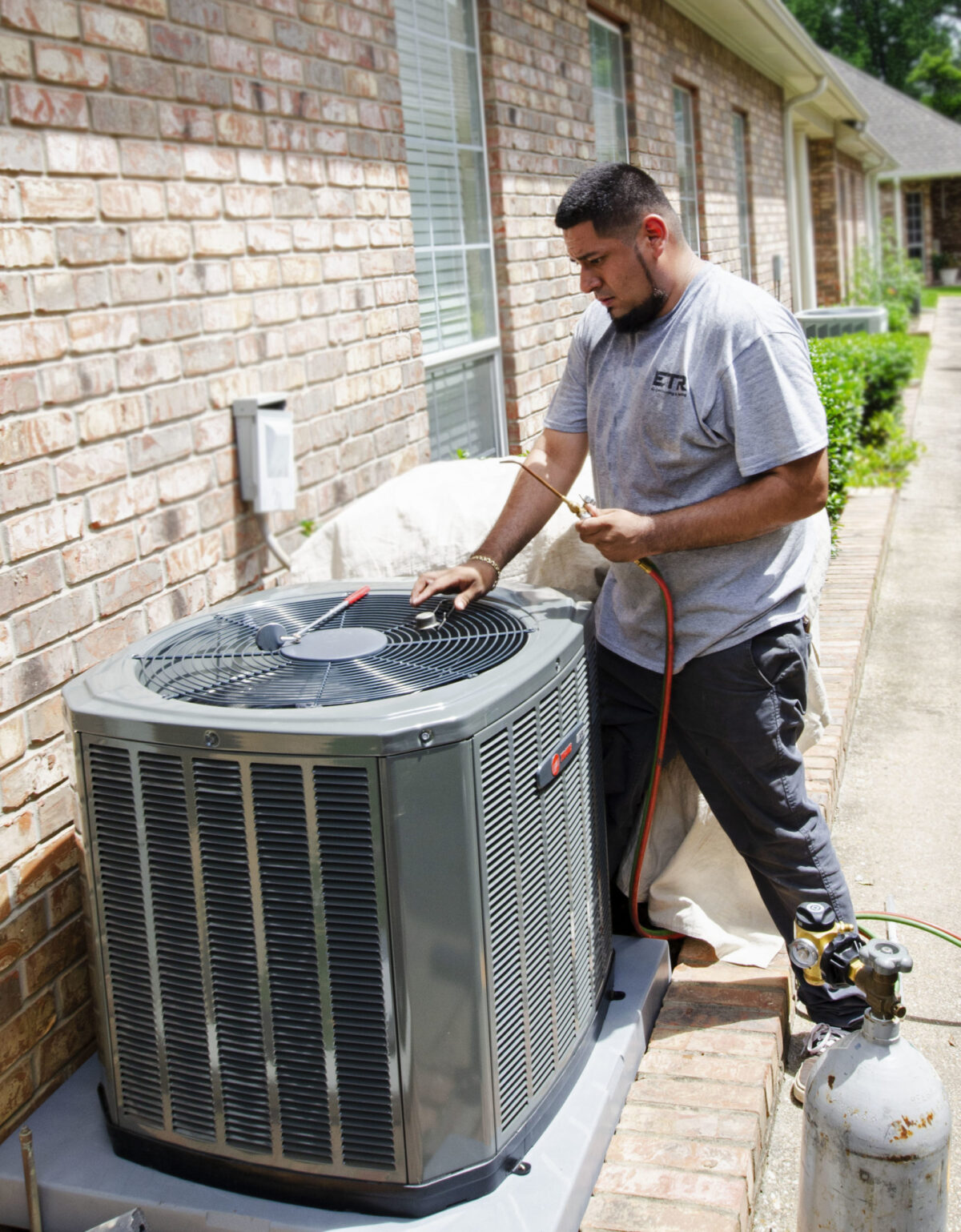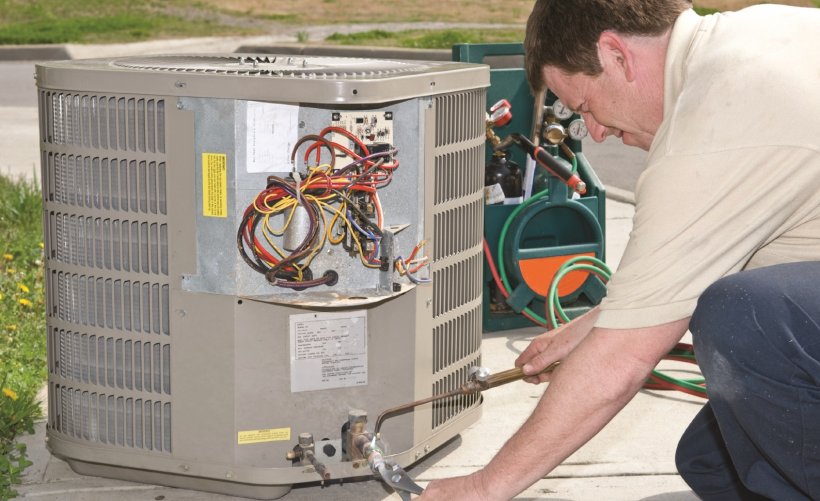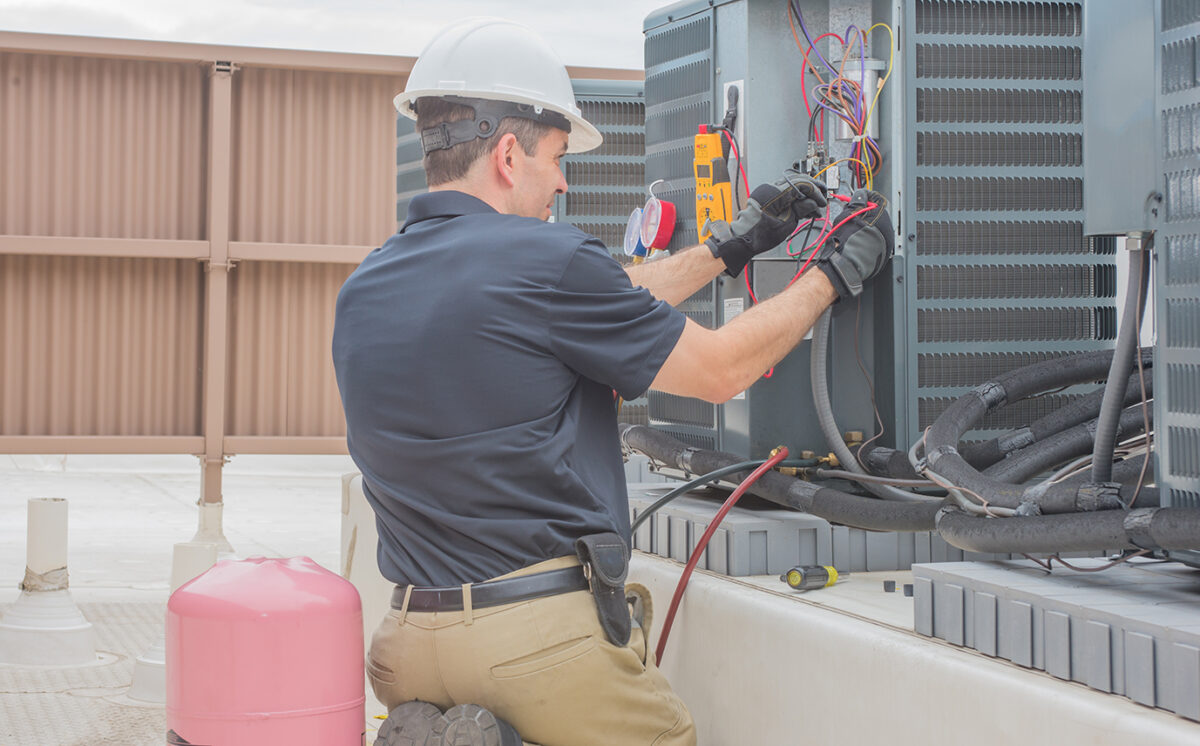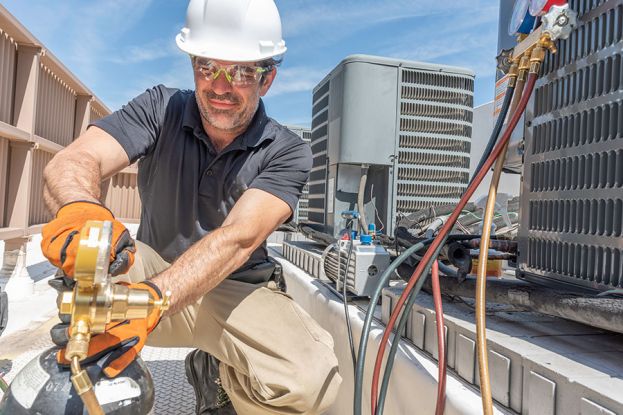8 HVAC Customer Service Ideas to Win Customers
1. Keep your word – When you tell a customer you will be there at a certain time, make sure you are. Being punctual shows that you respect their time and value their business.
2. Don’t make promises you can’t keep – If you know a repair is going to take more time than originally quoted, let the customer know as soon as possible. Trying to hurry a job along to meet an unrealistic timeline will only result in shoddy workmanship.
3. Communicate clearly – Make sure your customer understands what the problem is, what needs to be done to fix it, and how much it will cost. There should be no surprises when it comes time to pay the bill.
4. Follow up – After the job is completed, check in with the customer to make sure they are satisfied with the work. A simple phone call or email can go a long way in ensuring repeat business.
5. Be professional – Dress and speak in a way that shows you are a competent and trustworthy individual. This first impression can make all the difference in whether or not a customer chooses to use your services again.
6. Offer discounts – Everyone loves a good deal, so offer your customers discounts on future services. This will show your appreciation for their business and help you stay top-of-mind for future needs.
7. Provide exceptional customer service – Above all, make sure your customer is happy with the work you’ve done. If they have a positive experience, they’re much more likely to use your services again in the future.
How to give excellent customer service for HVAC businesses
As a business owner, you know that providing great customer service is one of the most important keys to success. After all, happy customers are more likely to come back and recommend your business to others. When it comes to customer service for HVAC businesses, there are a few extra things to keep in mind. Here are some tips for giving excellent customer service in this industry:
1. Show up on time. This is important for any business, but especially for those in the service industry. When your customers are dealing with a broken air conditioner or furnace, they need help fast. Showing up on time (or even early) shows that you care about their problem and are ready to get to work.
2. Be friendly and professional. Again, this applies to any business, but it’s especially important in the service industry. Your customers are already dealing with a stressful situation; they don’t need to be treated rudely as well. Be polite and professional, and do your best to make them feel at ease.
3. Take the time to explain things. Many customers are not familiar with how their HVAC system works. When you’re explaining the problem and the solution, take the time to explain things in layman’s terms. This will help put them at ease and build trust.
4. Offer a warranty. This shows that you stand behind your work and are confident in your ability to fix the problem. It also gives the customer peace of mind in case the problem isn’t truly fixed.
5. Follow up after the job is done. A quick call or email after the job is completed shows that you care about your customers and their satisfaction. This is a small gesture that can go a long way. By following these tips, you’ll be well on your way to providing excellent customer service for your HVAC business. Remember, happy customers are more likely to come back and recommend your business to others.
10 tips for outstanding HVAC customer service
As a business providing Heating, Ventilation and Air Conditioning (HVAC) services, your customers are at the heart of everything you do. Delivering outstanding customer service is therefore essential to both your success and theirs. Here are 10 top tips for outstanding HVAC customer service:
1. Get to know your customers The better you know your customers, the better able you will be to meet their needs. Take the time to get to know them as individuals and learn about their specific requirements.
2. Be responsive Customers appreciate prompt and efficient service. Wherever possible, aim to respond to their enquiries and requests as quickly as possible.
3. Communicate clearly Clear and effective communication is crucial in any customer service setting. Make sure you understand your customers’ queries and concerns, and take the time to explain things properly.
4. Be friendly and helpful Friendliness and helpfulness are always welcome in customer service. Show that you’re happy to help, and be ready with solutions to problems.
5. Follow up Make sure you follow up with customers after providing service, to ensure they’re satisfied and to see if there’s anything further you can do.
6. Take feedback on board Customer feedback – both positive and negative – can be extremely valuable. Use it to improve your service and make your customers’ experience even better.
7. Be professional Maintain a professional manner at all times, even when things get difficult. This will help to build trust and confidence with your customers.
8. Keep your promises If you say you’re going to do something, make sure you do it. Breaking promises will only damage your relationship with customers.
9. Go the extra mile When you go above and beyond for your customers, it really makes a difference. They’ll remember the great service you provided and be more likely to use your services again.
10. Thank your customers Finally, don’t forget to thank your customers for their business. A simple “thank you” can really make someone’s day – and it may just encourage them to use your services again in the future.
How to deliver world-class customer service for your HVAC company
Any business can benefit from delivering world-class customer service, but it’s especially important for HVAC companies. After all, HVAC stands for heating, ventilation, and air conditioning – three things that are essential for comfortable living and working conditions. But what exactly does world-class customer service look like in the HVAC industry? Here are four tips to help your HVAC company deliver world-class customer service:
1. Make sure your employees are properly trained This may seem like a no-brainer, but it’s worth stating nonetheless. Your HVAC company’s employees should be properly trained in all aspects of their job, from installation and repair to customer service. Not only will this ensure that they’re able to do their job to the best of their ability, but it will also allow them to provide world-class customer service. After all, how can your employees provide great service if they don’t even know what they’re doing?
2. Respond to customer inquiries quickly When a customer has an issue with their heating or air conditioning, they want it fixed as soon as possible. That’s why it’s important for your HVAC company to respond to customer inquiries quickly. Ideally, you should have someone available 24/7 to take customer calls. If that’s not possible, then make sure your voicemail message states when someone will be available to return the call. In addition to responding to phone calls quickly, you should also make sure your email inbox is being checked regularly.Customer service isn’t just about phone calls – it’s about all forms of communication.
3. Be transparent about pricing No one likes surprises when it comes to pricing, so it’s important to be transparent about the cost of your HVAC services from the start. Be clear about what is and isn’t included in the price, such as parts, labor, and any additional fees. This will help avoid any misunderstandings later on, and it will make your customers feel confident that they’re getting what they’re paying for.
4. Offer a warranty or guarantee Giving your customers a warranty or guarantee is a great way to show them that you stand behind your work. If something goes wrong with the repairs or installation, your customers will know that they can count on you to make it right. This will instill confidence in your company and its services, and it will encourage customers to use your company again in the future. By following these tips, your HVAC company can deliver world-class customer service that will keep your customers coming back.
Amaze your customers with these HVAC customer service tips
As a business owner, you know that providing great customer service is one of the best ways to differentiate your company from the competition. But what does great customer service look like when it comes to your HVAC business? Here are four tips to amaze your HVAC customers and keep them coming back for more:
1. Respond quickly to service requests. Your customers should never have to wait long for a response to their service request. Whether they contact you by phone, email, or online, you should always aim to reply within 24 hours. If you can’t solve the problem immediately, let the customer know that you’re working on it and provide regular updates.
2. Be available 24/7. HVAC problems never seem to happen at a convenient time. That’s why it’s important to be available 24 hours a day, 7 days a week. Whether it’s a broken furnace in the middle of winter or an overflowing AC in the middle of summer, your customers will appreciate knowing that you’re always there to help.
3. Offer a satisfaction guarantee. One of the best ways to build customer trust is to offer a satisfaction guarantee. This shows your customers that you’re confident in your ability to solve their problem and that you’re committed to their satisfaction.
4. Show appreciation. In today’s world, it’s easy to take customers for granted. But showing a little appreciation can go a long way. Whether it’s a simple thank-you card or a discount on future services, taking the time to show your appreciation will show your customers that they’re valued. By following these tips, you can be sure that your HVAC customers will be amazed by your level of customer service.
Provide an exceptional customer experience with these HVAC tips
Your HVAC system is one of the most important pieces of equipment in your home, and it’s important to keep it running smoothly. Here are a few tips to help you do just that:
1. Schedule regular maintenance appointments. This will help to keep your system running efficiently and prevent small problems from turning into bigger ones.
2. Change your air filters regularly. Dirty air filters can restrict airflow and cause your system to work harder than it needs to.
3. Be sure to keep an eye on your thermostat. A well-maintained thermostat can help to regulate the temperature in your home and keep your energy bills down.
4. If you have any problems with your HVAC system, be sure to call a professional right away. Trying to fix the problem yourself could make it worse, and it’s always best to leave repairs to the experts. By following these simple tips, you can help to ensure that your HVAC system runs smoothly and provides you with the comfortable indoor climate you need all year long.
How to go above and beyond for your HVAC customers
As a business owner, you always want to provide the best possible service for your customers. But sometimes, things happen that are out of your control. That’s why it’s important to go above and beyond for your HVAC customers, even when it’s not easy. Here are a few ways to go above and beyond for your HVAC customers:
1.Always be available. Make sure your customers can always reach you when they need to. This means having someone available to answer the phone 24/7, responding to emails and messages promptly, and being available for appointments and emergencies.
2. Offer a satisfaction guarantee. Let your customers know that you stand behind your work by offering a satisfaction guarantee. This will give them peace of mind and show that you’re confident in your abilities.
3. Stay up to date on the latest technology. Keep your business on the cutting edge by staying up to date on the latest HVAC technology. This way, you can offer your customers the best possible service.
4. Offer competitive pricing. Make sure your prices are competitive so your customers know they’re getting a good deal. This will keep them coming back to you for all their HVAC needs.
5. Go the extra mile. Sometimes, it’s the little things that make the biggest difference. Going the extra mile for your customers will let them know that you care about them and their experience. By following these tips, you’ll be sure to go above and beyond for your HVAC customers. They’ll appreciate your dedication to their satisfaction and will be more likely to recommend you to others.

